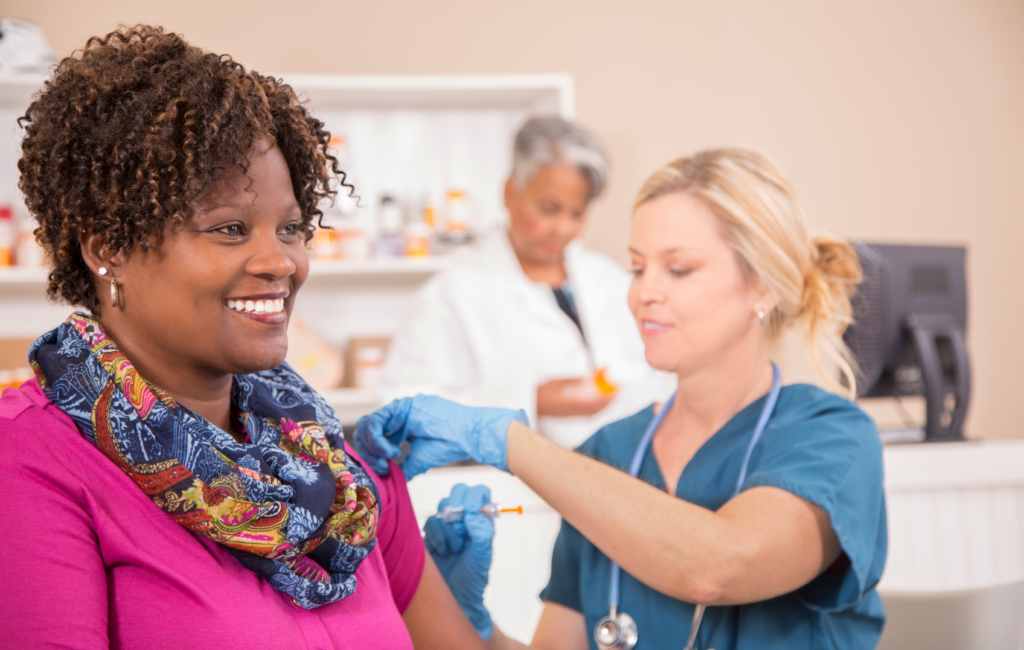This blog is written by our clinicians and aims to keep patients informed with up to date information on medical conditions.
Why travel consultations are more important now than ever before
After 2 years of pandemic-related travel restrictions, the world is opening back up. Travel rules might be easing up, but travel-related infections are not.

As you prepare for your trip abroad, protecting yourself against Covid-19 will likely be at the forefront of your mind. But it’s important to consider what steps you should be taking to protect yourself from other infections on your travels.
As we emerge from this pandemic, our immune systems may not be at their peak. The Covid-19 pandemic has brought a lot of change and uncertainty into our lives. These changes can affect our immune system in the following ways:
- Stress
Uncertainty causes stress, and stress weakens the immune system. When we’re stressed our levels of a stress hormone called cortisol rise. Elevated cortisol leads to lower production of white blood cells, which play an important role in fighting infection.
- Sleep difficulties
When people experience change, they can find themselves struggling to get good quality sleep. Sleep is an important factor in healthy immune system functioning. If you’re not getting enough sleep, your immune system may be weakened.
- Exercise
The pandemic has disrupted many people’s exercise routines. Exercise plays an important role in keeping the immune system strong. If your exercise levels have decreased during the pandemic your immune system may not be as strong as it was.
Given the last two years, it’s important to take steps to support your immune system in keeping you safe while you travel.
How can you protect yourself from travel-related infections?
The steps you need to take to protect yourself depend on many factors:
- Where you are travelling
- What activities you are doing while you’re there
- The type of accommodation you will be in
- Whether you suffer from any medical conditions
You can find information online about what precautions you need to take at Fit For Travel (https://www.fitfortravel.nhs.uk/destinations). The easiest and safest way to ensure you get the best protection is to book a travel consultation with an experienced medical clinic. A consultation will provide you with personalised advice which incorporates unique factors about you and your trip.
Depending on these factors your clinic may suggest vaccinations and other prophylaxis.
Travel vaccinations
The vaccinations you require will depend on your destination and planned activities. Your travel clinic will recommend vaccinations based on these factors. Your clinic may recommend being vaccinated against infections such as:
- Tetanus
- Hepatitis viruses
- Polio
- Diphtheria
- Yellow Fever
- Japanese Encephalitis
Malaria prophylaxis
Malaria is a life-threatening parasitic infection, transmitted through mosquito bites. There are 5 different species of parasites that cause malaria in humans.
People who are travelling to areas where malaria is endemic should take malaria chemoprophylaxis. Malaria chemoprophylaxis is medication that is designed to stop malaria developing following a bite from a parasite-carrying mosquito. The anti-malarial tablets you need will depend on what species of parasite are prevalent in the area you are travelling to.
As well as advising you on the best antimalarial tablets for you to take, your travel clinic will give you advice on steps you can take to reduce your malaria risk whilst travelling.
Is there a malaria vaccine?
You may have been reading the recent news about a malaria vaccine called RTS,S/AS01. Following a successful trial, The World Health Organization has now recommended the vaccine be rolled out to children in parts of sub-saharan Africa. This vaccine rollout is a groundbreaking step which will help reduce the number of childhood deaths due to malaria.1 For now however, the vaccine is not available commercially for travellers.
How can ROC help keep you safe from travel-related infections?
At ROC we have a dedicated travel clinic to support you with all your pre-travel health requirements. Our doctors have a wealth of experience in travel medicine and can:
- Give you personalised advice on precautions to take during your trip
- Carry out any necessary vaccinations
- Provide you with malaria chemoprophylaxis as required
- Help optimise any existing health conditions ahead of travel
We recommend visiting us 6 weeks before your trip if possible. This gives us time to arrange necessary vaccinations and take necessary steps to help you optimise your health. Although we recommend booking a consultation at least 6 weeks prior to your leave date, it is never too late to seek advice, and you can always get in touch with our clinic to enquire about our services.
Give our friendly reception team a call today to find out more about our travel clinic.
References
- WHO recommends groundbreaking malaria vaccine for children at risk. Who.int. https://www.who.int/news/item/06-10-2021-who-recommends-groundbreaking-malaria-vaccine-for-children-at-risk. Published 2021. Accessed April 8, 2022.

